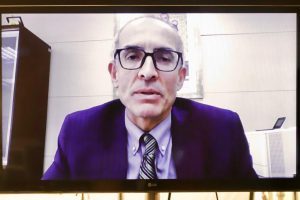São Paulo – “There is no doubt in my mind that only through science and technology will we be able to really feed more than 8.5 billion people in the world”, said on Wednesday (21) the president of the Brazilian Agricultural Research Company (Embrapa), Celso Moretti (pictured above), while discussing food security during the Economic Forum Brazil & Arab Countries.
Moretti opened a panel on the topic alongside Morocco’s National Institute for Agronomic Research (INRA) director Faouzi Bekkaoui. When stressing the essentiality of the research, Moretti spoke about the projection of population increase, urbanization, longevity and consumption patterns in 2030, when the world is expected to have 8.5 billion people, almost 1 billion more than at present.

According to Moretti, in 2030 the world will need 35% more food, 40% more energy and 50% more water. Embrapa made a study on the future of Brazilian agriculture. It takes into account variables such as sustainability, nutrition, risk management, agriculture 4.0, which must be taken into account in agriculture. According to the president of Embrapa, covid-19 reinforced the importance of issues such as health and traceability, among others.
Embrapa, with its research, played a crucial role in the development of Brazilian agriculture and in the transformation of the country from a food importer to an exporter. “Brazil has managed to develop a science-based tropical Agriculture,” said Moretti. The president of Embrapa also listed a series of sustainability systems and actions used by Brazilian agriculture.
In Morocco, the INRA does a similar job to Embrapa, focused on developing resilient, sustainable and competitive agriculture, according to Bekkaoui. At the forum, the director told about several results and work in progress, such as the genetic improvement of cultivars that live with the scarcity of rainfall and are resistant to the high salt content of Moroccan soil.
INRA has also developed adaptability maps for seven million hectares indicating the appropriate crop for these areas, a fertilizer map indicating the necessary quantities of fertilizers in them, works with the effects of climate change, with the development of palm trees, has works aimed at monitoring grazing, for the rationalization of water resources and the use of low pressure irrigation systems, improvement and greater production of sheep and goats, among others.
Bekkaoui said the institute has several international partnerships and is open to new cooperation. INRA completes its Green Plan this year and will make a new plan, called Green Generation, aimed at socially just, economically competitive initiatives for the development of modern agriculture, based on private investment, and environmentally responsible.
The Brazil & Arab countries Economic Forum is promoted by the Arab Chamber with the partnership with the Union of Arab Chambers and Arab League. It started on Monday (19) and ends on Thursday (22).
Check out the full coverage on ANBA.




